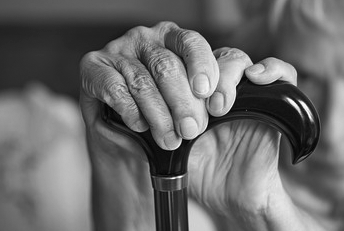
Q: What is Elder Abuse and Neglect?
A: Some examples of elder abuse are when someone hits, slaps, pinches, pushes, kicks, restrains, confines an elder. Some signs of elder abuse are: bruises, cuts, pain, and discomfort.
But what is even more common than elder abuse is elder neglect.
Q: What are some signs of elder neglect?
A: One thing that you should always look for are pressure sores. Some patients at skilled nursing homes have to be turned and repositioned every two hours. This is because if a patient lies down on her back too long or his side too long, the skin starts to break down because of the pressure. This happens especially on areas like the heels, ankles, hips, and buttocks. They first start to get red, then it becomes worse to the point where the skin starts rotting away, sometimes even to the muscle or bone underneath.
A lot of people think these wounds happen just because a patient is old. But these wounds are NOT a natural part of the aging process. It is usually caused by the nursing home failing to turn or reposition the patient like they are supposed to.
Q: Should the family check for pressure sores or just leave it up to the nurses?
A: It is the nurse’s duty to do skin checks and make sure that they prevent pressure soresfrom developing. However, some nurses, especially those that are overworked do not always catch pressure sores right away, if at all. Therefore, the family should also check the patient’s wounds, especially in bony prominences such as the sacral-coccyx, hips, heels, and ankles.
Q: What should the family do if they see pressure sores.
A: They should speak with the nurse and see whether they are aware and what they intend on doing about it. Then call us right away for a free consult.
Q: Are there any other signs of elder neglect?
A: A patient should not be falling repeatedly, if at all.Unfortunately, many elders are susceptible to repetitive falls. This type of injury can have serious consequences including fractures, broken bones, head injury, spinal cord injury, and fatalities. For elderly residents, the probability of broken bones increases with age.
Q: How can a family member check to see if a patient had a fall?
A: Remember to ask the patient. Sometimes a patient may fall and not tell the family member. If the patient has Alzheimer’s or dementia and cannot respond, be sure to look for symptoms such as swelling, bruising, deformity, and inability to use the limb.
Q:Are there other signs of elder neglect that families should watch out for?
A: Families should watch out for malnutrition and dehydration.This happens due to the failure to monitor intake such as when meals are rushed and residents do not get assistance eating. The elder is starving from not getting enough food or nutrients. This is inexcusable and can lead to greater health risks for an elderly person like infections, pressure sores, kidney disease, fatality.
Q: Are there any other signs of elder neglect?
A:Soiled diapers/clothing. A patient should not be repeated in soiled diapers. The nurses should help change and clean the patients frequently. Family members may just say there is nothing the nurses can do since the patient is incontinent. That is simply not true. The nurses should be regularly changing and cleaning patients.
If they are kept in dirty diapers too long and the patient has a wound in his coccyx, the patient can develop infections. Sometimes the patient starts to scratch when left in a soiled diaper for too long and then the feces and urine is left in their hand and may touch their mouth. Many patients get urinary tract infection being left too long in diaper filled with urine.
Actively check for dirty diapers. There are other signs too such as dirty skin and unkempt hair.
Also see how clean the facility is. Sometimes patients get serious infections because the staff do not take proper precautions related to hygiene. What can result are serious infections such asmeningitis, streptococcal infections, staph infections, and MRSA or other antibiotic-resistant bacterial diseases. Sometimes these infections go untreated, which can led to sepsis, septic shock, and even death.
Q: What are some things that a family can do to make sure that their loved one is being taken care of?
A: Visit different times of the day. There are usually either two 12 hour shifts or three 8 hour shifts depending on the hospital. There are good nurses out there but there are also bad ones too. Sometimes there may be good nurses, who are overworked or do not have enough help at certain times of the day. Therefore, visit on different times of the day (morning, afternoon, night, in the middle of the night if possible) to make sure that your loved one is getting proper care around the clock. Make sure that the call bell is working and that the nurses are responding if pushed. Stick around for the meal so that you see what the food is like that they are serving.
